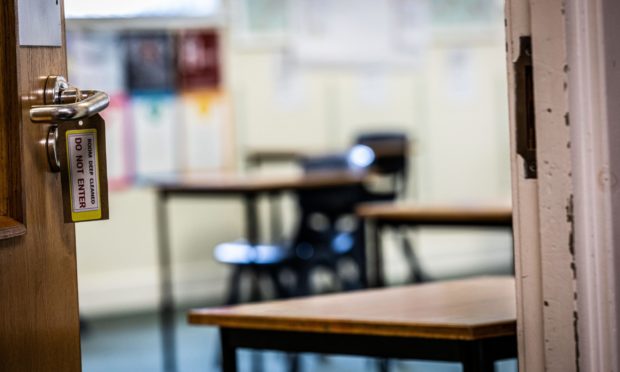Youngsters leaving schools in the north-east and Highlands for low-skilled jobs face being paid nearly a fifth less than they have been before the pandemic.
Education bosses at one northern council are considering the need to “collectively prioritise energies around school leavers”, such is the challenge they are expected to face next summer.
The long term impact of coronavirus on the prospects of school leavers will be discussed by Aberdeen councillors later this week.
A report, prepared by the local authority’s chief education officer Eleanor Sheppard, draws on national research reflecting the world pupils will enter as they finish secondary school.
One of the options she will lay out is for staff to “collectively prioritise energies around school leavers”.
But she warns there will be a need to recognise third and fourth year pupils will be impacted by the “longer-term economic scarring effects” and so will need support too.
Access to mental health services is also to be prioritised to help young people through.
The report highlights that those leaving school for a low-skilled job can expect to be paid 17% less than school leavers before the health crisis.
The report predicts more pupils will opt to stay on in school as recruitment freezes lead to an estimated 80% drop in recruitment.
Scotland-wide youth unemployment sits at 14.5%, with fears Aberdeen’s young may be worse hit still due to the higher redundancy risk in the city.
Job chances suffer further due to cuts in apprenticeship places, work experience placements and roles in the suffering hospitality trade due to health and safety concerns and the economic downturn.
Education chiefs have identified a number of at risk groups, expected to worst impacted.
Ms Sheppard warns: “There is widespread agreement those who leave education over the next few years will be negatively impacted than their peers who left school pre-lockdown.”
She adds that “all research would suggest a need” to introduce wide-ranging change.
Her report highlights fears young people in the care system – already disadvantaged in their access to jobs and training – will be “pushed further down the labour queue”.
With Aberdeen a so-called “redundancy hotspot” those experiencing poverty for the first time and those who already living in poverty – exacerbated by the pandemic – also feared to suffer.
Black, Asian, and minority ethnic groups – identified as being “more likely to be unemployed, on zero-hour contracts or in low paid or at risk roles” – and young women – who are most likely to leave school and take up “relatively low-skilled jobs in sectors
which have diminished” – are also at risk.
Aberdeen councillors on the education committee will consider officer’s plan to ensure pupils leave school with the best possible chances for their future, given the change in the world over the past eight months.
Aside from prioritising those imminently due to leave school, it includes reviewing the school curriculums to cater to growing economy sectors in the north-east, including health and social care, life sciences and the energy transition.
Youngsters are also to be encouraged to volunteer to build up their CVs, making up for any lack of work experience due to hesitancy from firms in the pandemic.
